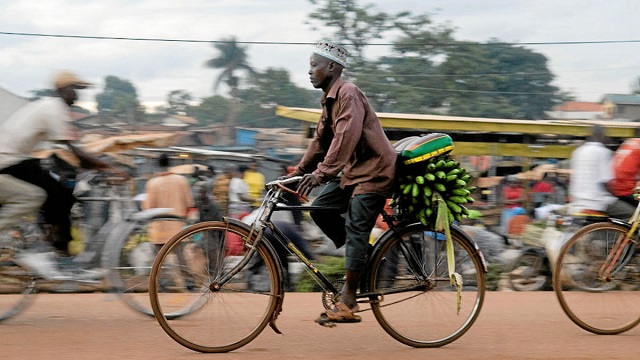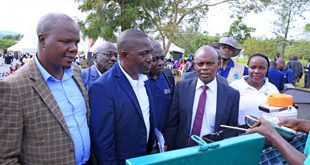
Kampala, Uganda | THE INDEPENDENT | Governments have been encouraged to improve road safety and better integrate the needs of cyclists into the design of transport infrastructure.
Tijjani Muhammad-Bande, the President of the UN General Assembly says that investing in city infrastructure to support cycling from protected lanes to bike-share programmes will contribute to a safer, resilient and sustainable future.
He made the statement in celebration of the World Bicycle Day which is marked annually on June 3, to acknowledge the uniqueness, longevity and versatility of the bicycle. The day this year was used to highlight the manner the bicycle has transformed the way the world moves around before and after the COVID-19 pandemic.
The COVID-19 crisis has cut off commutes and group activities involving travel of all kinds throwing recreational sports around the world into a deep freeze. But cycling has not only proved to be largely pandemic-proof but it also seems to be growing in popularity in many cities across the world.
Bicycles have also surged in popularity as governments continue to look for ways to ease lockdown measures, provide recreational opportunities to those living in cities and fill a gap left by limited public transport – all while maintaining physical distance to keep the virus at bay.
“In times of COVID-19, cities are being challenged to rethink their infrastructure with bicycles playing a vital role in offering a quiet, economical and non-polluting alternative to cars and public transportation systems”, maintained the official.
As a reliable, clean, environmentally friendly means of transportation, bikes are also being recognized as a key component of the post COVID-19 “green recovery”. The World Health Organisation recommends cycling both as a mode of transport and as a way of staying healthy throughout and after the global crisis. It observes that cycling not only contributes to healthy, likeable cities by limiting pollution, it also keeps people physically active.
With millions of people around the world using bicycles as their primary means of transportation, it is essential that their needs are better incorporated into policy and transport infrastructure investments.
“In many countries, owning a bicycle has an even more significant impact for families, lifting them out of poverty while providing them with improved access to quality education, jobs, markets and community activities when public transportation is unavailable”, explained the Assembly president.
In response to the coronavirus pandemic, cities have come up with plans to free up street space normally dominated by cars for the exclusive use of cyclists and pedestrians for at least certain periods each week. The United Nations Environment Programme is supporting the “Share the Road Programme”, aimed at moving away from prioritizing a car-driving minority towards investing in infrastructure for the majority: those who walk and cycle.
******
URN
 The Independent Uganda: You get the Truth we Pay the Price
The Independent Uganda: You get the Truth we Pay the Price


